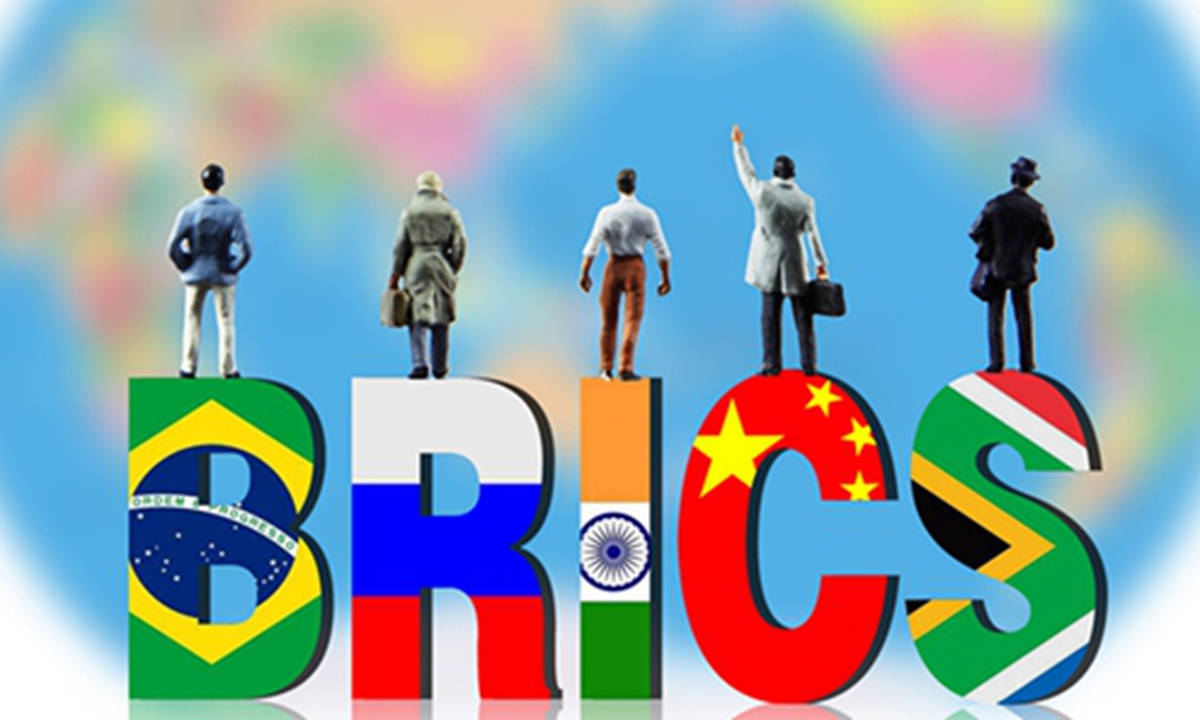
BRICS Photo: VCG
The year 2022 represents China's turn to host the BRICS Summit. It comes at a time when relations between the West and BRICS nations are at an all-time low, driven by unprecedented global volatility.
First, there is an ongoing Ukraine-Russia war. Unfortunately, for the West, the US and its proxies (NATO) who could end the war at the negotiation table have chosen instead to continue arming Ukraine. The Western media blames the war on Russia's aggression, but the rise of alternative media has shown a different reality. As stated numerous times, the end goal is to "weaken" Russia, unfortunately at an unimaginable cost to the global economy, and of Ukrainian lives.
Second, the US is stalking China in the South China Sea. Many believe that US support for the Ukrainian war serves as a warning to China over a possible military operation against Taiwan. Interestingly, this warning has recently been directly verbalized by US President Joe Biden who gave an assertive "yes" on intervening militarily if the Chinese mainland takes the island of Taiwan by force. In response, Chinese Foreign Minister Wang Yi warned the US against perpetuating its Cold War mentality after US Secretary of State Antony Blinken called China the most serious long-term challenge to the international order.
The economic sanctions that the West has placed on Russia have so far backfired. The demand for Russian oil has reached records unseen for many years. As Russia demands payment in their local currency (ruble), the US dollar suffers and may cease to be the oil purchase standard (petrodollar) in the near future.
It is pretty clear that the geopolitical hegemonic forces are quickly realigning. The intrusion into the Chinese and Russian interests may have devastating consequences for the global economy, but importantly, may also speed up a worldwide geopolitical realignment. How these developments are managed may determine the future of major powers and perhaps the future of humanity itself.
But in the interim, the consequences of this global jostling for political hegemony have been devastating. The global price of gas, oil, and food has skyrocketed to levels not seen in recent history including in the US itself. There are fears that if the situation is not quickly resolved then civil protests may overwhelm governments all over the world as stagflation erodes their purchasing power and drags down living standards.
Tempers at the BRICS Academic Forums (May 20 2022) have never been this flared. Almost all presentations from BRICS nations spoke out against Western aggression and specifically against US wards all over the world which are not sanctioned by the United Nation. Recommendations from BRICS countries do not seem as reconciliatory as the West had previously expected. This time around, the collective voice seems to be arguing for a multipolar - multilateral institutional setup in favor of BRICS and developing nations.
There are recommendations for the escalation of the work being undertaken by the New Development Bank (NDB), possibilities of establishing a BRICS common currency and alternative financial instruments to the SWIFT system after Russia was expelled.
There are talks of purchasing oil from OPEC nations with currencies other than the petrodollar. The US seems to be intent on persuading OPEC nations like Saudi Arabia not to join the petrodollar desertion. Given the all-time low in diplomatic relations between the US and Iran, it is not guaranteed that Tehran will be won over. Russia has called on BRICS countries to establish joint oil and gas refining facilities with Russia.
What seems obvious both from the perspective of BRICS nations and the developing world is that Western hegemonies have failed developing nations. If anything is to go by, the UN votes against Russia have demonstrated that much of the global South is unhappy with double standards that have come to define global affairs. Something has to change, and if change will not come peacefully then the entire world stands to suffer.
The author is the Executive Dean of the Faculty of Management Sciences at the Durban University of Technology and a former director of the South African BRICS Think Tank. opinion@globaltimes.com.cn




